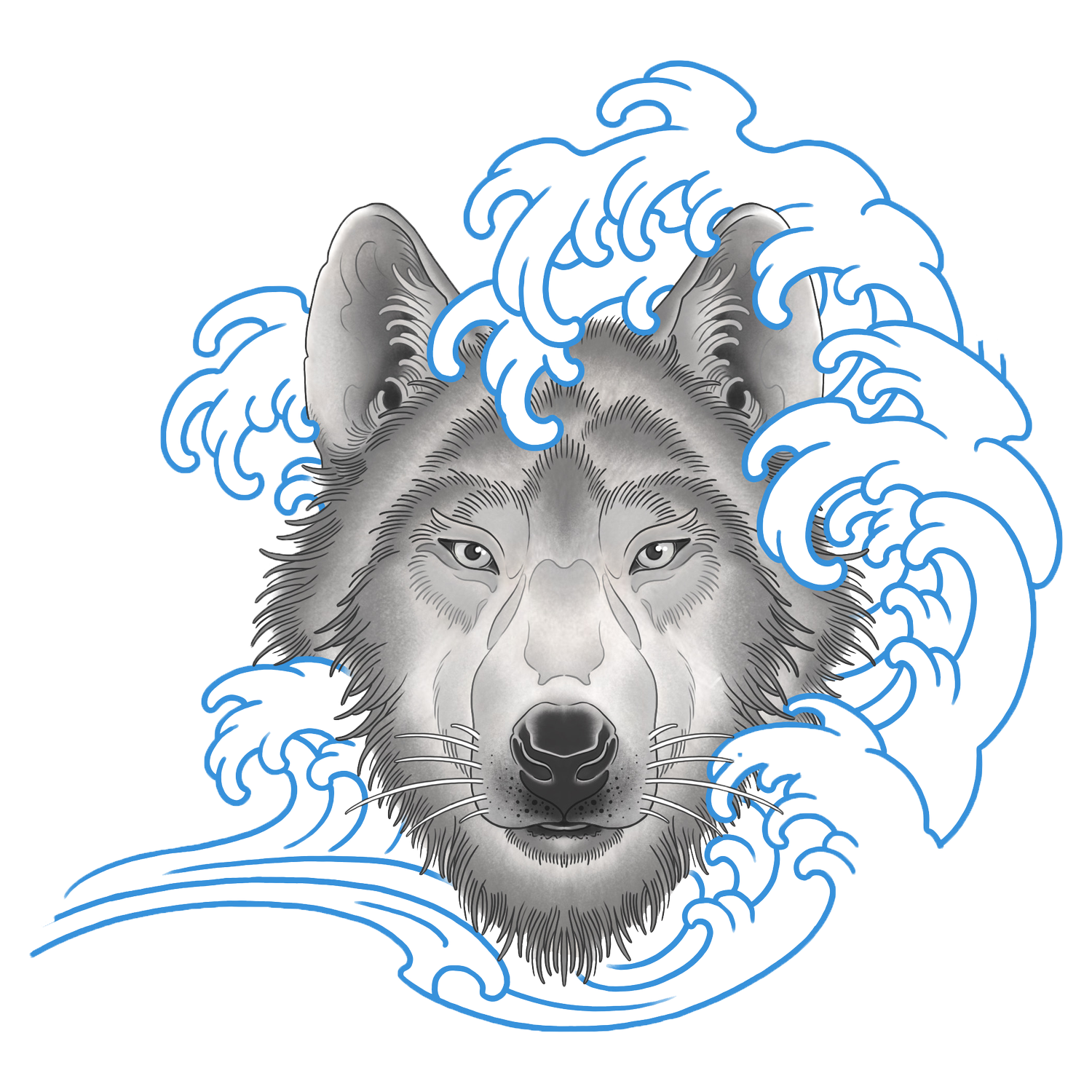About us
Ocean Wolf founder, Dr. Robert Paul Wolf, was born in February 1985 in East Germany. Living in a small village surrounded by nature, his future career path was possibly foreseen early on. Like Charles Darwin, in his teenage years, he was fascinated by animals, from larger vertebrates to small invertebrates like spiders. For example, at the end of high school, Paul caught and released bats with his first mentor. At the same time, his mother didn't support having a pet bird spider. Likely to compensate for the missing pet, Paul studied Biology. Hence, at the beginning of his scientific education, Paul Wolf was interested in insects and spiders. At the Institute of "Allgemeine & Spezezielle Zoologie" at the University of Rostock, he became fascinated with evolutionary concepts and engaged in discussions with lecturers like Prof. Dr. S. Richter and P.D. Dr. A. Bick. The latter was also the docent who woke his fascination for Annelids and their taxonomy.
Since 2008, Paul Wolf followed this calling with several field trips to Russia, Sweden, and Spain, collecting and identifying polychaetes, which also earned him the nickname "verminator". After studying Biology for six years, he passed his final exams in Zoology, Genetics, Animal Physiology and Medical Psychology with a "very good". As Paul was already working with polychaetes, it was only natural that his final "Diplom" thesis (of 9 months) would deal with differentiating species of the Scoloplos cf. armiger complex. Therefore, he learned and used different microscopy techniques like creating permanent microscopy slides, staining specimens and making fine dissecting needles. Subsequently, Paul spent weeks staring at an SEM screen to find the perfect pictures describing specific characters. Parallel, Paul used molecular genetic techniques to sequence and analyze the DNA of his study subjects.
In New Zealand, Paul moved quickly beyond the traditional Alpha and Beta taxonomy by starting his PhD at the Victoria University of Wellington. His thesis grapples intellectually with the reproductive biology, larval development and ontogeny of an endemic sessile Polychaeta. Paul is frequently sparring with colleagues about larval development at the triennial International polychaetes conference, representing New Zealand and hopes to organize this conference in New Zealand one day.
While Paul's (now) wife submitted his final PhD thesis to the university library, Paul had already moved south for his next adventure, developing a land-based abalone hatchery in Kaikoura, working with Pāua Industry Council (PIC). For this project, Paul collaborated with colleagues from National Institute of Water and Atmospheric Research (NIWA), Auckland University of Technology (AUT), and abalone farmers and supported other Abalone hatchery programs. Through the project in Kaikoura, Paul supported community workshops. He taught marine biology at the local high school for different years while organizing and supporting fieldwork and lab experiments for the students.
After developing the hatchery and providing protocols for husbandry, nursery, and spawning, the project had its first successful spawning and fertilization. At that point, while further supporting the hatchery, Paul followed a new calling and returned to his roots. In 2020/21, he joined the taxonomy team at the Cawthron Institute. Within this role, he introduced new microscopy techniques like staining, creating permanent slides, developed manuals for sampling and creating reference collection, wrote Safety operation protocols, and maintained microscopic equipment. Soon, Paul extended the taxonomy lab's competencies beyond its core function by developing research projects with colleagues from the aquaculture, freshwater and biosecurity teams and worked with colleagues from the aquaculture team to identify fish parasites. Colleagues from the biosecurity team and Paul advised a regional council in the mitigation of one of the globally worst non-native fouling organisms, Ficopomatus enigmaticus. For this project, Paul authored globally the first manual to study the recruitment of tube-dwelling polychaetes and coauthored several reports, including one global review of this species highlighting its reproductive Biology (here is a list of Paul's publications and presentation).
Besides Paul's work, he promotes and advocates for taxonomy and similar fundamental disciplines in New Zealand at government discussions (e.g., green & white Paper), the Royal Society and national conferences. Paul also took it upon himself to represent New Zealand at an international polychaete conference (IPC) and projects like artificial intelligence for identifying organisms (e.g., FanthomNet).
As Paul's diverse past indicates (see his Curriculum Vitae), he is excited about any small or large project you will bring to him. His affinity for challenges, hunger for knowledge, and proven ability to collaborate nationally and internationally make him the perfect partner for your marine (science) project.
Paul is sorting collected invertebrates after a dive in the
Balearic Sea (Ibiza, 2012)
Paul Wolf on the hunt for Scoloplos spp. at Sylt (Germany, 2013)
After hours of collecting heavy black mud, Paul was looking forward to washing the sediment for his precious study subjects at Sylt (Germany, 2013)
Hugo Wolf trusty assistant and employee of the month,
3rd month in a row
Neanthes virens ~75cm long, collected at the White Sea (Russia, 2009)
After years of research on
Spirobranchus cariniferus
Paul finally graduated with his PhD (Wellington 2020).
Photo Credit: Woolf Photography






